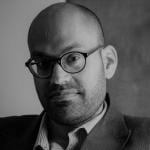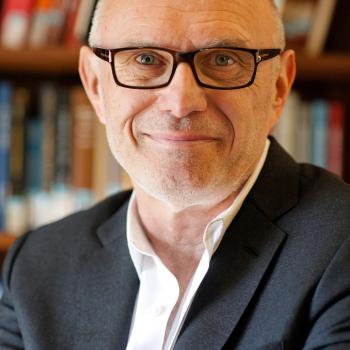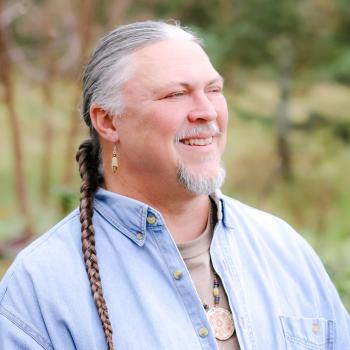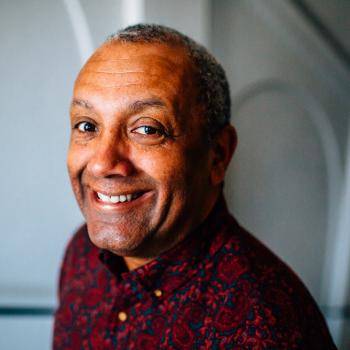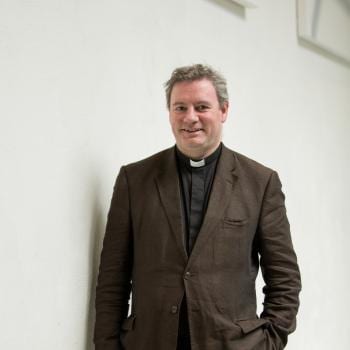
Phillip Cary, Professor of Philosophy and Scholar-in-Residence at the Templeton Honors College, Eastern University
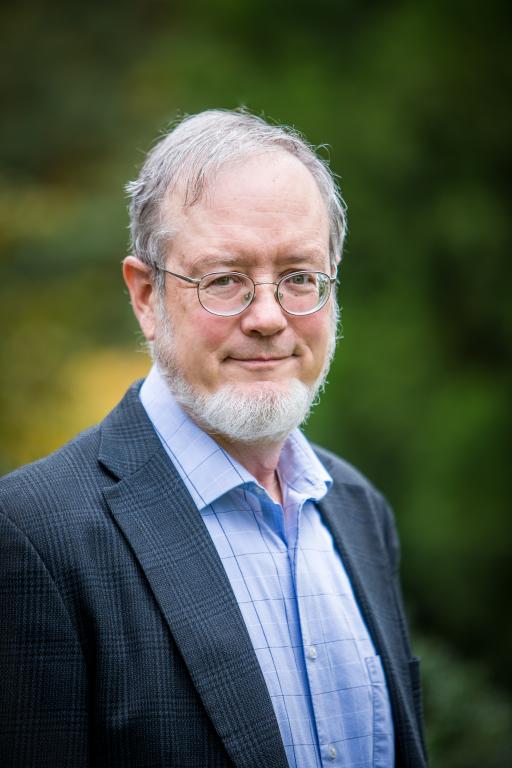
Why do you love teaching and researching about Christian theology?
At a really gut level, studying theology just cheers me up. I suppose that is because it gives me hope. And that of course is because I am a Christian, and I am learning about my Beloved, the Lord Jesus who is the hope of the world. It is an extraordinary privilege to spend so much of my time and my working life learning what the Holy Spirit, through Scripture and tradition, has to teach about who Jesus is. And I get to teach Christian students at my little Christian college, many of whom are gladdened to learn this with me, and others of whom are troubled (for the tradition is often so different from what they expected). To work through the gladness and the trouble with them is also a great privilege, more than a little humbling, yet also a real joy that sustains me.
What is one “big idea” in your scholarship?
The main thought I have been pursuing for about 20 years is the notion that the Gospel is how God gives us Christ. By believing a word, we receive a person. I think that piety of the word is at the heart of Protestant theology, which I’ve been learning from Luther.
Oddly enough, this is often not how Luther is read. Perhaps this is in part because Luther thinks of the Gospel the way Catholics think of a sacrament—as an external means of grace—and many Protestants aren’t used to thinking that something external can inwardly change their lives. Perhaps it’s because Luther’s notion of Gospel doesn’t give us anything to do, because it is about what Christ does, not what we do—and for many people, that seems “impractical.” (In Luther’s terms, most preachers proceed as if they can only be “practical” by preaching Law, not Gospel—telling people what to do rather than giving them Christ). And perhaps it’s because the usual view of Luther denies what I take to be obvious: that for Luther justification is a process, and it makes a real change in us, causing us to be new persons as Christ is formed in our hearts. That last bit (justification as process of real change) is my big “heresy” as a Luther scholar, which I think opens up what is joyous and cheerful and comforting about Luther’s theology.
Who is one of your academic heroes and why do you admire them?
From my dissertation advisor, Nicholas Wolterstorff, I learned that charitable reading is not just being nice; it is a requirement of sound scholarship. From my other dissertation advisor, George Lindbeck, I learned that charitable reading is a kind of sacred duty of ecumenism.
What books were formative for you when you were a student? Why were they so important and shaping?
Alasdair MacIntyre, After Virtue (also Whose Justice? Which Rationality?) MacIntyre taught me to think of rationality itself as inhabiting the narrative of a tradition.
Karl Barth, Church Dogmatics. I haven’t read the whole thing! But it taught me the essential thing about being a theologian: you keep coming back to Christ, learning him afresh, and learning something new every time. Then you are free to outgrow Barth, because your job is to grow into Christ.
Read Cary’s Work
The Meaning of Protestant Theology: Luther, Augustine, and the Gospel that Gives Us Christ (this is the “big idea” book).
Good News for Anxious Christians: Ten Practical Things You Don’t Have to Do (a popular-level book unfolding the consequences of the “big idea”)
Luther: Law, Gospel and Reformation (video and audio lecture series with The Great Courses)
Follow Cary Online
For my theological work, the place to go is my Academia.edu webpage.
If you ran into me at a conference and didn’t want to talk theology, what would you want to talk about?
The first thing to talk about is spouses and children, and then what’s for dinner. At dinner, we might talk about music, movies, politics (alas) and the latest novel by Marilynne Robinson.
What is a research/writing project you are working on right now that you are excited about?
Next up is a short book for Lexham Press giving a basic exposition of the Nicene Creed for ordinary churchgoers. Many Christians, oddly, have not been taught what Christians believe. That was my experience, and it is the experience of many of my students. So they love learning what the creed teaches, as I did.








